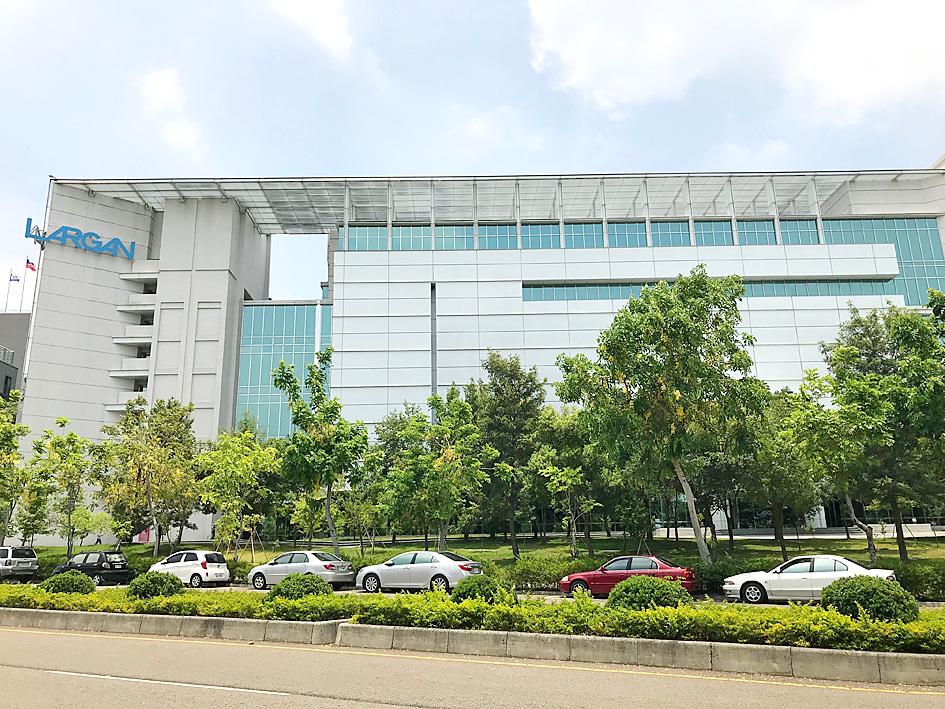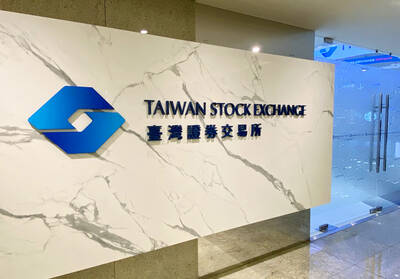Smartphone camera lens supplier Largan Precision Co’s (大立光) sales rose 12.34 percent year-on-year last month, but declined 6.18 percent from December last year amid a slow season for the industry, the company said in a statement on Friday.
Largan’s consolidated sales of NT$4.607 billion (US$162.28 million) last month were the lowest monthly sales since July last year, and remained below NT$5 billion for the second consecutive month, the Apple Inc supplier said.
Largan attributed the contraction to weak raw materials supply, adding that it also projects further decline this month, due to fewer working days because of the Lunar New Year holiday.

Photo: Chen Mei-ying, Taipei Times
However, Largan said that lenses with a resolution of 20 megapixels or greater, which have a higher profit margin, accounted for 20 to 30 percent of shipments last month, up from 10 to 20 percent in December. Lenses with 10 to 20 megapixels accounted for 50 to 60 percent last month, and lenses with less than 10 megapixels accounted for 10 percent, Largan said.
At an investors’ conference last month, Largan CEO Adam Lin (林恩平) said that the company’s business outlook remained cautious, as uncertainty over the course of the COVID-19 pandemic affected high-end smartphone demand.
Many consumers opt for low to mid-range smartphones amid the pandemic, the company said.

Taiwan Semiconductor Manufacturing Co (TSMC, 台積電) secured a record 70.2 percent share of the global foundry business in the second quarter, up from 67.6 percent the previous quarter, and continued widening its lead over second-placed Samsung Electronics Co, TrendForce Corp (集邦科技) said on Monday. TSMC posted US$30.24 billion in sales in the April-to-June period, up 18.5 percent from the previous quarter, driven by major smartphone customers entering their ramp-up cycle and robust demand for artificial intelligence chips, laptops and PCs, which boosted wafer shipments and average selling prices, TrendForce said in a report. Samsung’s sales also grew in the second quarter, up

LIMITED IMPACT: Investor confidence was likely sustained by its relatively small exposure to the Chinese market, as only less advanced chips are made in Nanjing Taiwan Semiconductor Manufacturing Co (TSMC, 台積電) saw its stock price close steady yesterday in a sign that the loss of the validated end user (VEU) status for its Nanjing, China, fab should have a mild impact on the world’s biggest contract chipmaker financially and technologically. Media reports about the waiver loss sent TSMC down 1.29 percent during the early trading session yesterday, but the stock soon regained strength and ended at NT$1,160, unchanged from Tuesday. Investors’ confidence in TSMC was likely built on its relatively small exposure to the Chinese market, as Chinese customers contributed about 9 percent to TSMC’s revenue last

Taiwan and Japan will kick off a series of cross border listings of exchange-traded funds (ETFs) this month, a milestone for the internationalization of the local ETF market, the Taiwan Stock Exchange (TWSE) said Wednesday. In a statement, the TWSE said the cross border ETF listings between Taiwan and Japan are expected to boost the local capital market’s visibility internationally and serve as a key for Taiwan becoming an asset management hub in the region. An ETF, a pooled investment security that is traded like an individual stock, can be tracked from the price of a single stock to a large and

Despite global geopolitical uncertainties and macroeconomic volatility, DBS Bank Taiwan (星展台灣) yesterday reported that its first-half revenue rose 10 percent year-on-year to a record NT$16.5 billion (US$537.8 million), while net profit surged 65 percent to an unprecedented NT$4.4 billion. The nation’s largest foreign bank made the announcement on the second anniversary of its integration with Citibank Taiwan Ltd’s (花旗台灣) consumer banking business. “Taiwan is a key market for DBS. Over the years, we have consistently demonstrated our commitment to deepening our presence in Taiwan, not only via continued investment to support franchise growth, but also through a series of bolt-on acquisitions,” DBS